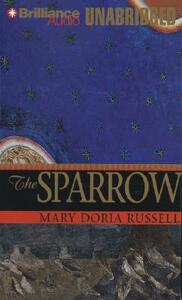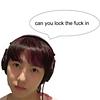Take a photo of a barcode or cover
I didnt expect a science fiction book to be deeply philosophical and beautiful. Not only was the writing beautiful, the characters and themes explored will stay with me for a long time.I don’t think I’ll ever stop thinking about this book.
dark
medium-paced
Plot or Character Driven:
A mix
Strong character development:
Yes
Loveable characters:
Yes
Diverse cast of characters:
Yes
Flaws of characters a main focus:
No
dark
emotional
reflective
medium-paced
Plot or Character Driven:
A mix
Strong character development:
Complicated
Loveable characters:
Yes
Diverse cast of characters:
Yes
Flaws of characters a main focus:
Complicated
Graphic: Death, Rape, Violence, Vomit
Moderate: Child death, Cannibalism
“I don’t know...anything at all with certainty. I don’t even know if certainty is what I should want.”
Ayyy ayyy. Why didn't anyone warn me.
This was basically pulpy Catholic schoolgirl hurt/comfort fanfiction. In spaaace. Look, if I want to read about sexy Latino space priests being made to suffer... and suffer.... and suffer... then I already have one, and that is Dan Simmons's Father Federico de Soya who, iirc, is literally turned into a meat smoothie and then magically reconstituted using his magical space crucifix every time he makes a jump into hyperspace.
I say this also as a former Catholic schoolgirl who read and wrote her fair share of ridiculously over-the-top, angsty, hurt/comfort fanfic about various priestly studs. I feel like I've grown out of that though (I mean, I do hope I have), and so I spent much of this book just groaning and rolling my eyes and going, "oh GAWD stahpppp about Emilio Sandoz's hair [SO MUCH ABOUT HIS HAIR FALLING INTO HIS EYES], his eyes, his sexy chest" blah blah blah. But I feel like I can recognize a fellow traveler when I see one. And this book was just waaaaay too invested in Sandoz's (a) sexiness and (b) suffering. It was also EXTREMELY Catholic - to the point of it should be advertised as Christian fiction? - and also, oh, so dated, so 1990s. Like, come on: people in 2019 are *not* still quoting commercial jingles from the 1980s.
So many things that were just absurd.
- First, I kinda got into the characterizations at first - I did like Anne Edwards (Ann? I listened to this on audiobook, so forgive my spellings). But then I noticed that they all... sounded the same? And while I did enjoy some of the dad joke bantering, I did eventually tire of it. Like, maybe this is the Platonic ideal of salt o' the Earth humanity in Russell's mind, but I just found everyone kinda provincial and similar and nerdy? Some of the jokes were real groan-inducing. And to have the aliens ENJOY THESE JOKES TOO? I was like, Gawd, please.
- Second, the Big Reveal. I will not spoil it, but it seemed so terribly unrealistic. Like,
- Third, they plant a garden? On a random alien planet? Has Russell traveled internationally, cuz like even most airport Customs + Immigrations will tackle you if you try to walk in with an apple!? Also, they just eat random space vegetables (AND MEAT)? Apparently none of these characters have heard of the Columbian exchange? Honestly, the book jumped the shark for me when the Jesuit mission was put together, because it just strained belief that this group of mediocre-seeming pals would actually ALSO be the ones who (a) hear the SETI signal, and (b) get to go?!
I spent most of the book comparing it unfavorably to Kim Stanley Robinson's Mars trilogy, and Ursula Le Guin's Hainish Cycle, because those authors have tackled many similar themes - first contact, other cultures, space anthropology - but, like, with way more believability and intelligence? This just seemed so hokey in comparison! AND PLEASE, NOT ONE MORE SENTENCE ABOUT EMILIO'S EYES OR HAIR.
This was basically pulpy Catholic schoolgirl hurt/comfort fanfiction. In spaaace. Look, if I want to read about sexy Latino space priests being made to suffer... and suffer.... and suffer... then I already have one, and that is Dan Simmons's Father Federico de Soya who, iirc, is literally turned into a meat smoothie and then magically reconstituted using his magical space crucifix every time he makes a jump into hyperspace.
I say this also as a former Catholic schoolgirl who read and wrote her fair share of ridiculously over-the-top, angsty, hurt/comfort fanfic about various priestly studs. I feel like I've grown out of that though (I mean, I do hope I have), and so I spent much of this book just groaning and rolling my eyes and going, "oh GAWD stahpppp about Emilio Sandoz's hair [SO MUCH ABOUT HIS HAIR FALLING INTO HIS EYES], his eyes, his sexy chest" blah blah blah. But I feel like I can recognize a fellow traveler when I see one. And this book was just waaaaay too invested in Sandoz's (a) sexiness and (b) suffering. It was also EXTREMELY Catholic - to the point of it should be advertised as Christian fiction? - and also, oh, so dated, so 1990s. Like, come on: people in 2019 are *not* still quoting commercial jingles from the 1980s.
So many things that were just absurd.
- First, I kinda got into the characterizations at first - I did like Anne Edwards (Ann? I listened to this on audiobook, so forgive my spellings). But then I noticed that they all... sounded the same? And while I did enjoy some of the dad joke bantering, I did eventually tire of it. Like, maybe this is the Platonic ideal of salt o' the Earth humanity in Russell's mind, but I just found everyone kinda provincial and similar and nerdy? Some of the jokes were real groan-inducing. And to have the aliens ENJOY THESE JOKES TOO? I was like, Gawd, please.
- Second, the Big Reveal. I will not spoil it, but it seemed so terribly unrealistic. Like,
Spoiler
when they find an emaciated, clearly-tortured Sandoz in some space prison whorehouse, their first instinct is to think... that he willingly became a space prostitute??!! Uh, what? So when Sandoz has his big Good Will Hunting-esque therapy breakthrough that he was instead repeatedly raped, and all the other Jesuit priests are Pikachu face shocked and sobbing, I was like, AND THIS IS A SURPRISE?!- Third, they plant a garden? On a random alien planet? Has Russell traveled internationally, cuz like even most airport Customs + Immigrations will tackle you if you try to walk in with an apple!? Also, they just eat random space vegetables (AND MEAT)? Apparently none of these characters have heard of the Columbian exchange? Honestly, the book jumped the shark for me when the Jesuit mission was put together, because it just strained belief that this group of mediocre-seeming pals would actually ALSO be the ones who (a) hear the SETI signal, and (b) get to go?!
I spent most of the book comparing it unfavorably to Kim Stanley Robinson's Mars trilogy, and Ursula Le Guin's Hainish Cycle, because those authors have tackled many similar themes - first contact, other cultures, space anthropology - but, like, with way more believability and intelligence? This just seemed so hokey in comparison! AND PLEASE, NOT ONE MORE SENTENCE ABOUT EMILIO'S EYES OR HAIR.
challenging
dark
emotional
mysterious
sad
medium-paced
Plot or Character Driven:
Plot
Strong character development:
Yes
Loveable characters:
Yes
Diverse cast of characters:
Yes
Flaws of characters a main focus:
Yes
challenging
dark
sad
medium-paced
adventurous
challenging
emotional
reflective
slow-paced
Plot or Character Driven:
Character
Strong character development:
Yes
Loveable characters:
Complicated
Diverse cast of characters:
Yes
Flaws of characters a main focus:
Complicated
More than 400 pages of meticulous world-building, character development, and intellectual inquiry culminate in a singularly horrifying (if heavily foreshadowed) plot turn that would've enraged me if The Sparrow hadn't thoroughly won me over already. Instead, I'm merely conflicted. Russell takes such care to craft a complex ecosystem and culture for her aliens, only to leave us with an impression of them as monsters. I suppose human history is full of evidence that beauty and barbarity can go hand in hand; European classical music, for example, was funded by the slave trade. The 20th anniversary edition at least offers some release with a thoughtful afterword.
Anyway, this is the densest work of science-fiction I've read in a while, and I enjoyed the challenge.
Anyway, this is the densest work of science-fiction I've read in a while, and I enjoyed the challenge.
an amazing book! it had everything that i love in a good book: a little bit of scifi, religion, and human interest.
"Not one sparrow can fall to the ground without your Father knowing it."
"But the sparrow still falls."
Emilio Sandoz feels he is being called by his God on a mission to find The Singers whose music provides the first proof of other intelligent life in the Universe. Inspired and comforted by the presence of his close friends and adopted family, he feels reassured that the Jesuit mission to Rakhat will confirm his faith, bring him closer to his God, and inspire a new depth of understanding.
This novel is beautifully written and compelling; Russell's vivid descriptions bring Rakhat so to life...you can almost taste it. The intense concentration of characters, their nearly symbiotic fit with one another, and the novelty of their situation acts as a hook to the story. Yet, there's an element of slapstick to the missionaries journey; despite their relative intelligence - they are mostly accomplished scientists, engineers, scholars, etc. - they are woefully naive, careless and under prepared. Lulled by the idyllic beauty of Rakhat and easy acceptance of the locals they meet to their foreign appearance and ways, they fail to appreciate the precariousness of their situation. Really, this novel was an anthropological nightmare from start to finish; a nod to the misguided missionaries of past human endeavours.
In spite of my initial reservations about reading this book, I really enjoyed the story. I was expecting to be irritated by the underlying theology as I am not a religious person, but I felt the author did a good job of presenting this as a necessary foundation for the story without either forcing the belief system on the reader, or undermining it. In fact, the only issue I ultimately had with this book was a laborious start and the repetitiousness involved with explaining the close and complex relationships between the characters. At times I found myself skimming paragraphs, frustrated by what I felt was the needless over explanation of the conflict between Sandoz's beliefs and his vows of celibacy, and those of his friends who did not share or necessarily understand his convictions.




